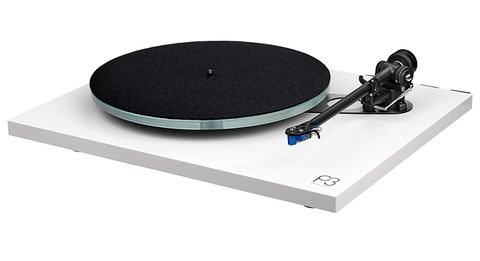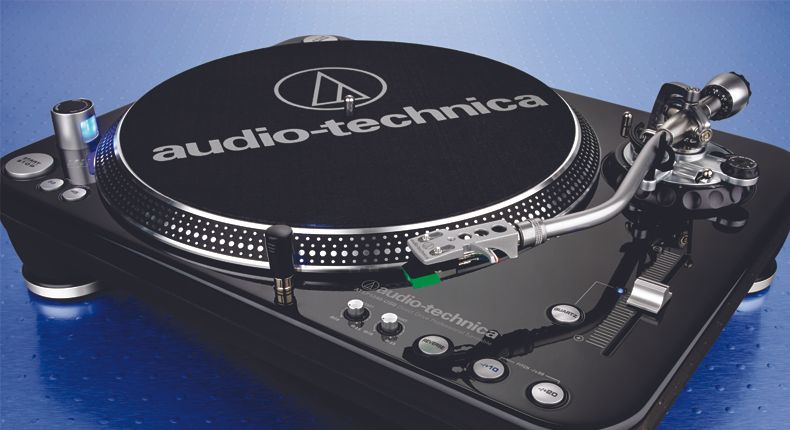Many people thought that the Revox name was the finest of the best back in the mid-1970s. The company was recognized as a provider of ultra-high-end hi-fi equipment, far beyond even the most well-known US brands. The A77 tape recorder, which was utilized in recording studios and high-end hi-fi systems alike, was proof of this, as if it were needed. The B77 that followed solidified this, and it became a badge of honor for any well-heeled audiophile with a thousand pounds (or two) to spend…
Other hi-fi separates developed by the business included some excellent amplifiers and tuners, as well as a variety of turntables. Because these were Revox, they had to be unique, pricey, and created and made unlike anything else. They were also expected to deliver exceptional results and unrivalled dependability. To put it another way, Revox set out like a fly to swat the rising (and precisely built) high-end Japanese rivals. You may conclude that, based on the appearance of their era’s products, they were largely successful.
The B795 was an exceptionally costly gadget in 1978, costing £400 (in comparison to £230 for a new Linn LP12). This was reflected in the design and construction, both of which were (at the time) cutting-edge. The deck, which measures 449x142x395mm and is made of a mix of grey Nextel-finished steel and aluminium, was completed in the same way as the B77 tape recorder (weighing 11kg). It had a quartz-referenced direct drive motor (with a claimed 0.05 percent wow and flutter) and a parallel tracking 40mm ceramic tonearm that weighed 40g and had an effective mass of just 3g, according to three patents. The deck includes an independently sprung subchassis, which is an unique and desired feature for any direct drive. The turntable motor is completely silent and accelerates to full speed in less than a second.
The B795 does not come with a plethora of amenities, which is in keeping with the company’s professional reputation. Stop-start and cueing are the only features, with the three buttons (up/down, arm left, arm right) serving as a paradigm of ergonomic excellence. The arm contains servo-electronics to control its movement and LED optical detection to recognize the end of the side, as well as automatic muting for all cueing activities, despite its ergonomic superiority. Put on a record, swing your arm across into position, and marvel at how precisely it ‘clicks’ into place. Then click the lower button, which has the exact feel of something only found in the best scientific measurement instruments, and listen to the ‘whirr’ of the arm electronics-activated lift-lower motor. The deck’s overall feel is magnificent when in use. This is the kind of crazy over-the-top build that turntables like the vintage EMT and Garrard emanate, and it feels like only a Revox can.
The B795 sounds and feels like a rock, with a huge amount of force. If there was ever a turntable with sound characteristics similar to a steam roller, this is it. You can expect it to be tight and taut because it has a good quartz-locked direct driven motor, a large platter, and excellent isolation. The bass is colossal, with an unflappability that you don’t get from belt drives. It’s dynamic in a way that few others are, and it’s gifted with remarkably low rumbling and other unwanted noises.
Whether you like them or not, the Revox’s parallel tracking arm is well-designed. It’s clean, quiet, and has that characteristic sound that parallel trackers are known for, as well as a spacious soundstage that stretches from left to right and fine dimensionality. There’s also no impression of an arm moving through a groove (with the treble response changing as the stylus gets closer to the run-out groove), resulting in a fairly neutral, even sound across the frequency spectrum (and indeed across the radius of the disc). It’s a clean, incisive, and self-effacing sound; it’s not charismatic or romantic (like Linn’s LP12 is), but it’s always neutral and in command. It appears to ‘simply play music,’ similar to a high-end open reel tape recorder…
The Revox B795 is a rare beast on the secondhand market these days, but its construction means that, although many Japanese and British superdecks have failed or gone out of tune, the Revoxes have tended to perform admirably. Although a surprising amount of 795s (and 790s, which were essentially the same but with variable pitch and a digital speed readout) were sold, you’ll have to seek in Germany for them in good condition. Even yet, a good specimen is easily worth £500 to anyone, and parts and service manuals are still plentiful. Perhaps not everyone’s cup of tea, but those looking for a fantastic semi-auto analogue disc spinner with a legendary name on the front should start looking now.







